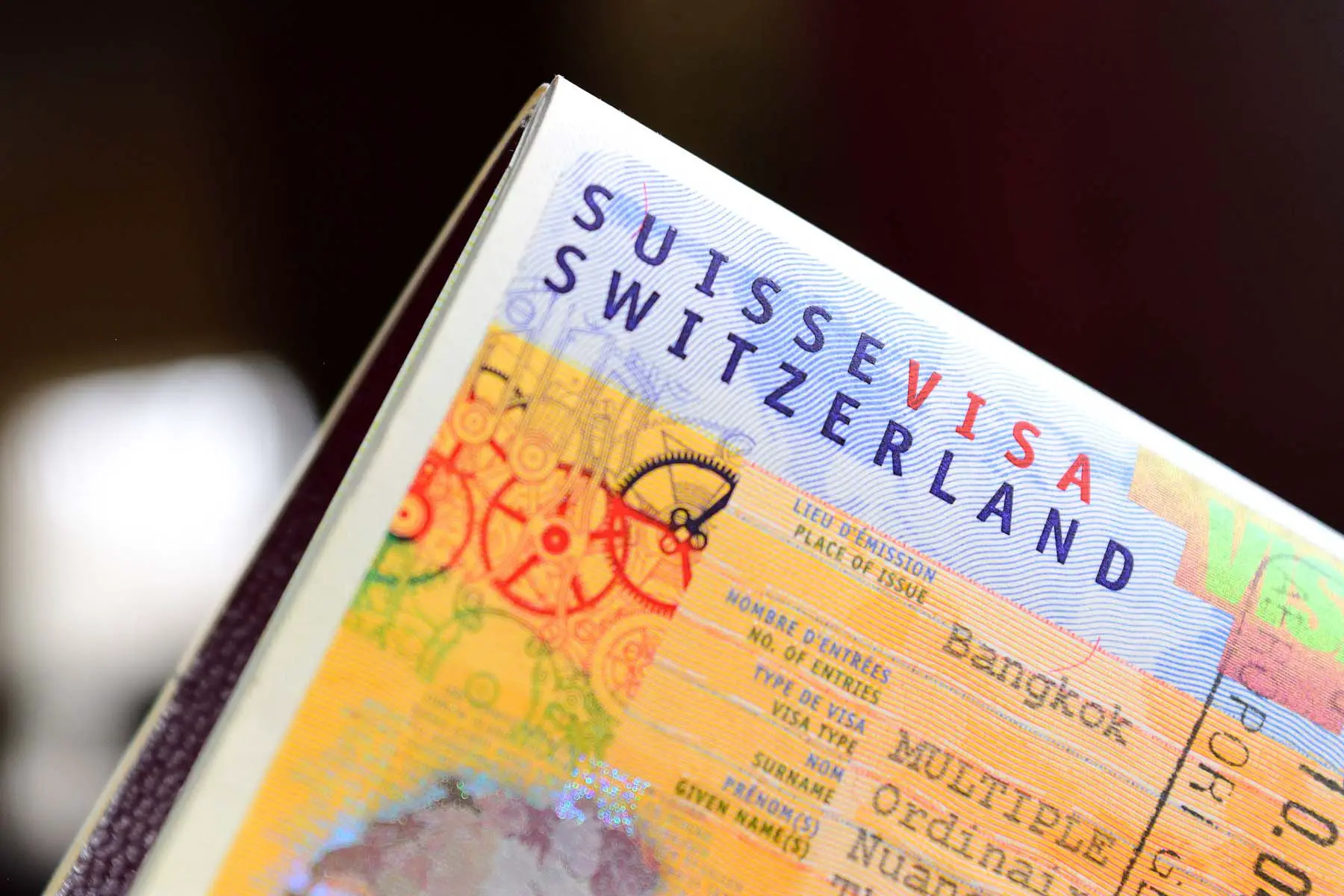Switzerland is one of Europe’s most popular countries for expats – and it’s easy to see why. The compact nation is not only stunningly beautiful, but those who live there also enjoy a high standard of living, good salaries, and, of course, all that fresh mountain air.
From the picturesque lakeside cities of Zurich and Lucerne to the international flavor of Geneva, Switzerland certainly offers something for every expat. However, if you’re dreaming about starting a new life in the beautiful alpine country, there are a few things that you should consider before making the big move. These include looking into local visa requirements, researching housing options, and reading up on the local lifestyle. To help you out, though, this checklist includes everything you should be thinking about before moving to Switzerland.
- Do your research
- Decide where you want to live
- Arrange your Swiss visa
- Move your belongings to Switzerland
- Arrange your pet’s move to Switzerland
- Think about health insurance
- Start looking for a job
- Sort out your finances
- Find somewhere to stay
- Think about Swiss education
- Apply for an International Driving Permit
- Brush up on your Swiss languages
- Indulge in the local culture
The Relocator
Planning a new life in Switzerland? Give yourself some peace of mind with The Relocator. On their easy-to-use platform, you’ll be able to compare your options quickly, getting quotes from some of the biggest names in global relocations. Move abroad confidently with The Relocator.
Do your research
When you think of Switzerland, you probably picture soaring mountain peaks, lush green valleys, and lakes that look clean enough to drink. However, if you’re considering setting up a new life in Switzerland, it’s essential that you take a closer look at what everyday life is like in the country. For starters, general Swiss household expenditure is significantly higher than in neighboring countries, which is something to consider.

This includes everything from household groceries and eating out, to public transport charges and school fees. However, the sometimes eye-watering cost of living in Switzerland is offset by a great quality of life and some of Europe’s highest salaries. For many expats living in Switzerland, this is particularly appealing. Be sure to check out these must-read guides when researching about expat life in the country:
Decide where you want to live
If you’ve done your research and like the sound of life in Switzerland, then your next step is to consider where you might want to live. For some expats, this will be decided by outside influences, such as receiving a job offer for a position based in a particular city. However, if your options are open, it can be a good idea to give serious consideration to where you want to live in Switzerland. After all, it’s going to be your brand new Swiss home.

Despite its size, Switzerland is full of variety. This is partly fuelled by the country’s geography and the many language differences across the country. Many expats will be tempted by the relative bustle of Zurich, Switzerland’s largest city, or Geneva, an international center in its own right. However, there are many other great places for expats to settle, from cozy cities to beautiful mountainside villages. For information, read our guide to the best Swiss cities for expats.
Arrange your Swiss visa
Once you’ve settled on Switzerland and perhaps even decided which Swiss city you would like to call home, you’ll need to assess your visa options. Switzerland is a member of the European Free Trade Area (EFTA), therefore, if you’re an EU/EFTA citizen you should have the right to move to Switzerland under the Freedom of Movement Act. However, this right has varied between countries in the recent past. If you’re a UK citizen, you’ll also need to check the latest developments following the Brexit negotiations.

If you’re not from an EU/EFTA country, you’ll likely need a visa to enter Switzerland for a long-term stay that exceeds three months. You’ll typically need to apply for this from abroad. As the process requires approval on federal and cantonal levels, it can take anywhere up to six months, so start well ahead of time to avoid disappointment. For more information on Swiss immigration, read our guide to visa requirements in Switzerland.
Move your belongings to Switzerland
When it comes to planning your move, you’ll need to work out how you’re going to transport all your belongings to your new Swiss home. You can bring your household goods, personal effects, and more into Switzerland tax-free if you can prove that the country is your new place of residence. Notably, students moving to Switzerland are exempt from this rule.

Getting your belongings across borders and oceans can seem daunting, but it doesn’t have to be. Many expats prefer the security of using a global relocation company. These relocators are familiar with personal and corporate relocations and should be your first port-of-call for the move. They also provide storage options, which can be a great help if you don’t have a home arranged in Switzerland.
International relocation companies include:
For more information on preparing your move, see our guide to relocation options for moving to Switzerland.
Arrange your pet’s move to Switzerland
Luckily for animal lovers, Switzerland is a great place for pets. Dogs will love chasing through the mountainside meadows, while cats can enjoy exploring those picturesque lakeside cities. However, Switzerland has strict requirements and regulations for the entry of pets and animals into the country. Therefore, make sure you are aware of these before starting the process.

While all this can seem confusing at first, you shouldn’t worry. Starting the process of relocating your four-legged friends as soon as possible can make it seamless. Thankfully, many relocation companies can help with the move, from filling out the right paperwork to arranging the actual journey. And while the journey will be a little stressful for your pets, they’ll soon fall in love with the wide-open spaces of Switzerland.
Think about health insurance
It’s mandatory for all foreigners living or working in Switzerland to take out Swiss health insurance. Some exemptions to this rule do exist, such as certain pensioners, embassy staff, and cross-border workers, but for the most part, you’ll need to take out public health insurance in Switzerland.
That said, these exemptions do differ between regions, so be sure to check with your local canton to see whether these relate to your situation. You can read our guide to the Swiss healthcare system for insight into how it all works.

For newcomers to Switzerland who are at risk of a coverage gap, international health insurance from one of these trusted providers can give you peace of mind while you settle in:
While not a substitute for Swiss public health insurance, plans that cater to expats are useful for those who travel frequently and for any short-term stays in the country.
Start looking for a job
With high salaries, good working conditions, and low unemployment, Switzerland is a great place to work. Some expats moving to the country will already have a job offer secured before they even step foot on Swiss soil. However, many will arrive in Switzerland eager to find work. You can give yourself a headstart on the competition by starting your job search before you leave home.

Generally speaking, the Swiss job market is fairly buoyant and competition for positions can be fierce. Industries such as engineering and technology, pharmaceuticals, and finance are typically most fertile for expat jobseekers, while many international organizations are also headquartered in Switzerland. Be aware that quotas exist for non-EU/EFTA residents, and many roles are filled without being advertised. Networking and being proactive, therefore, will definitely help you when job hunting in Switzerland.
Sort out your finances
As any expat will tell you, when moving abroad, it is essential that you have a good handle on your financial situation. Even when relocating with the best and most frugal intentions, you’ll be surprised at just how quickly your money seems to disappear. Unfortunately, there are some costs that even the most well-prepared of expats can’t plan for.

If you’re moving to Switzerland, it’s even more important to keep track of your money. After all, due to the high cost of living, your money might not go quite as far as you expect. This can lead to cash flow problems before you receive your first Swiss paycheck. Thankfully, there are plenty of online platforms that can help tide you over by letting you transfer money from home. These include:
For more information, read our guide to international money transfers.
Find somewhere to stay
Do you dream about waking up in a picture-perfect Swiss chalet overlooking a lush mountainside? Or perhaps a lake-view apartment in central Zurich is more your thing? Whatever your ideal Swiss home, chances are you’ll need to find short-term accommodation when you arrive in Switzerland. This will give you the chance to find your bearings and give you and your family a comfortable start to Swiss life.

You may be lucky enough to have your employer find you temporary accommodation in Switzerland. However, if you’re not so lucky, then you’ll need to find your own place to stay when you arrive. This is where serviced apartments can be a great option for the first few weeks and months. Alternatively, you may be able to find longer-term leases on online accommodation platforms. This will give you time to plan your next move, whether you want to rent or buy in Switzerland.
Think about Swiss education
If you’re moving to Switzerland with children, then you’ll need to think about what type of schooling you want for them. Generally speaking, you have the choice between public and private schools. Public education is managed at cantonal levels, meaning that the requirements and options will depend on where you end up living. For more information on what you can expect, read our guide to the education system in Switzerland.

Many parents moving to Switzerland prefer to enroll their children in local private or international schools. These can often be a better alternative for older children, although be aware that these can be significantly more expensive than what you are used to. The right option for your children will typically depend on your own individual circumstances, so be sure to do your research ahead of time.
Apply for an International Driving Permit
As long as you’re over 18, you can use your foreign driving license for 12 months after moving to Switzerland. However, if your license is not in English, German, French, or Italian, then you’ll need an International Driving Permit. These are typically much easier to acquire in your home country, so be sure to sort this out before moving.

If you’re planning a longer-term stay, however, then you need to get a Swiss license within your first year in Switzerland. EU/EEA citizens can exchange their driving licenses for a local Swiss license. However, other citizens will typically need to take various courses and tests to get a Swiss license. For more information on this, read our guide to getting a Swiss driver’s license
Brush up on your Swiss languages
Switzerland has not one, but four official languages. While English is fairly widely spoken in Switzerland, you should still brush up on those language skills. Thankfully, there are plenty of ways you can do this, including easy-to-use apps such as:

If you want to take things a little further than an app, then look for local language classes in your area. That said, be sure to learn the language that suits your future plans in Switzerland. After all, you don’t want to spend months perfecting your Italian only to end up living next to the German border in Basel.
Indulge in the local culture
Okay, so you might not be living your best Swiss life just yet, but that doesn’t mean that you can’t start soaking up a little culture from your new home. Thankfully, there are a number of ways to do this, wherever you are in the world. For starters, why not try some of these great Swiss recipe ideas? Who wouldn’t want to move to the Alps after an evening of fondue?

If melted cheese isn’t your thing, though, be sure to check out some excellent Swiss movies which will give you an insight into local life. There’s also a whole host of great content about Switzerland right here on Expatica. From shopping at a Swiss supermarket to finding the best family hikes in the country, we have you covered.



